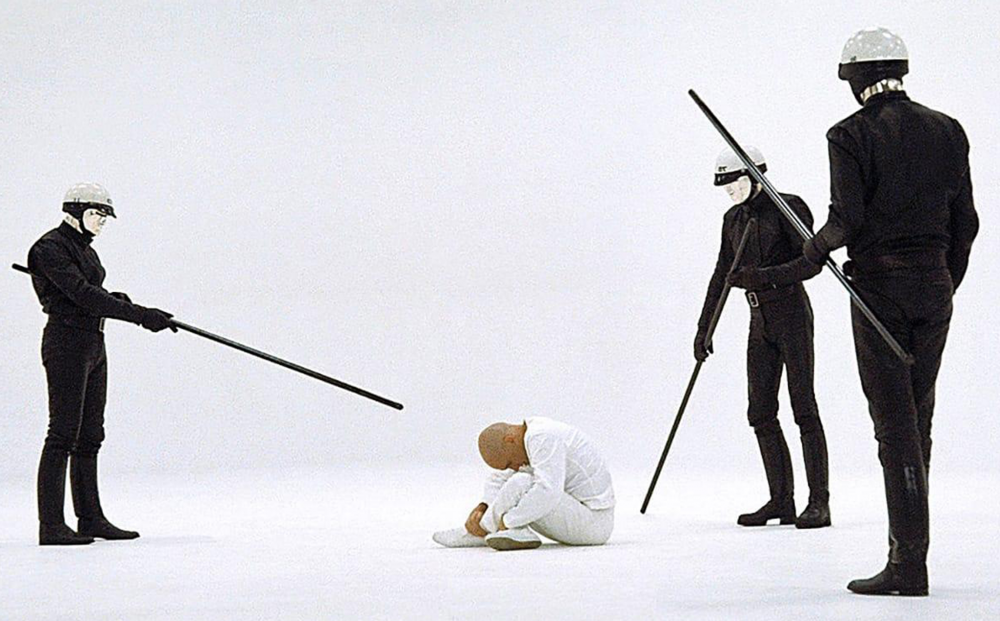Fritz Lang’s ‘Metropolis’ Is Centerpiece of Film Forum Series on Worries About the Threat Posed by Technology
‘A.I. From Metropolis To Ex Machina … or, How the Movies Have Been Warning Us for Nearly 100 Years’ is a selection of three-dozen films that, one hopes, maintains its status as a warning instead of a prophecy.

Film Forum is bringing in the new year by playing into what a lot of folks have been grumbling about for some time now: that technology is on the march and the destination to which it’s marching is … kind of scary. “A.I. From Metropolis To Ex Machina … or, How the Movies Have Been Warning Us for Nearly 100 Years” is a selection of three-dozen films that, one hopes, maintains its status as a warning. Prophecies like these we don’t need.
Of course, big tech is putting a happy face on artificial intelligence, and not every pop culture prognostication comes true. As many a comedian has noted, we here in the 21st century have been shortchanged by the promise of flying cars. Still, do you remember Dick Tracy’s two-way wrist radio? Take a look at your Apple watch: The future is here. We’ll find out if A.I. is, to quote the supercomputer HAL 9000 from Stanley Kubrick’s “2001: A Space Odyssey” (1968), “foolproof and incapable of error.”
Worries about the threat posed by technology predate the advent of mass media. What is the second commandment — you remember, “Thou shall not make unto thee any graven image” — if not a caution about the potentiality of man-made artifacts superseding the will of God and nature? We can point to other harbingers including Greek myths, the poetry of Ovid, and the Swiss alchemist Paracelsus, the latter of whom had a recipe for independent life whose primary ingredients were human blood, semen, and horse dung.
The Judaic A.I. of yore, the Golem, was made of a material considerably less objectionable — that is to say, clay — and was animated by means that were spiritual: the name of God written on a slip of paper. Since then, it’s been a hop, a skip, and a jump from Mary Shelley’s “Frankenstein” to a panoply of automatons, calculators, information processors, and maschinenmenschen, among the most indelible being the curvaceous lady robot portrayed by Brigitte Helm in Fritz Lang’s “Metropolis” (1926).
Lang’s picture is the centerpiece of “A.I. From Metropolis To Ex Machina” and much else besides. Within this inescapable science fiction opus lies the entirety of the 20th century and, likely, the 21st century as well. Art, politics, religion, sociology, and economics are grist for Lang’s mill. Although the plot is kindergarten simple — workers sticking it to the man, basically — the movie’s reverberations are far-reaching. A hundred-or-so years since its making, “Metropolis” continues to be a spectacle worth attending to.

The films featured at Film Forum range from the highfalutin to the deeply sardonic and, you best believe it, the fast, the cheap, and the pulpy. Thank the curatorial team for sticking with Bryan Forbes’s original cinematic take on Ira Levin’s novel “The Stepford Wives” (1975) and bypassing the regrettable 2004 remake helmed by muppet master Frank Oz. The original “Star Wars” (1977), now confusingly re-titled “Star Wars: Episode IV–A New Hope,” is included, as are other box office favorites like “Alien” (1979), “The Terminator” (1984), “The Matrix” (1999), and, on a gentler note, Disney’s “Wall-E” (2008).
The most off-key film on the docket, particularly for viewers who know George Lucas primarily as the braintrust behind the “Star Wars” franchise, is his directorial debut, “THX 1138” (1971). It can be difficult to square its abstracted Orwellian dystopia with the man who gave us Jar Jar Binks.
Cinematically, “THX 1138” teeters on being avant-garde, particularly given how radically it tweaks the compositional parameters of the screen’s formatting. Storywise, its tale of governmental oppression and emotional disassociation is fairly conventional, but the picture benefits from a cadre of stern actors, including Robert Duvall, Donald Pleasance, and, especially, Maggie McOmie as LUH 3417. Ms. McOmie, in her only feature film role, brings much-needed tenderness to this “love story filmed on location in the 21st century.”
The 21st century has, so far, proved to be less sterile than Mr. Lucas had imagined back in the day. Let’s hope that the influence of A.I. on our lives remains similarly unformed. In the meantime, there is a provocative run of pictures to be enjoyed down on Manhattan’s West Houston Street.

